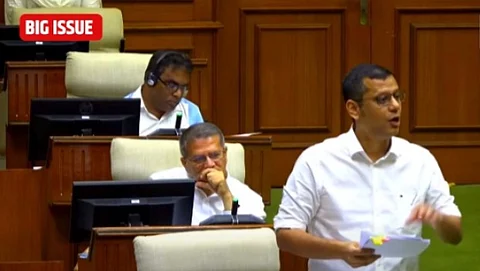

Opposition Leader Yuri Alemao and Aldona MLA Carlos Alvares Ferreira recently raised concerns over the financial implications of Goa’s ambitious smart meter rollout during a calling attention motion on Monday. They pointed out that while the project’s total estimated cost stands at ₹890 crore, the government plans to recover ₹820 crore directly from consumers. Alemao argued that instead of burdening the public with higher tariffs, authorities should first prioritise collecting the ₹600 crore in unpaid dues that remain outstanding from existing consumers. He stressed that recovering these arrears would be a fairer and more practical step to stabilise the power sector’s finances.
Responding to these concerns, Power Minister Sudin Dhavalikar dismissed claims circulating publicly that every consumer would need to pay ₹10,000 for the installation of smart meters. He clarified that these figures are exaggerated and assured that cost recovery will not fall so heavily on individual households. Despite his explanation, the assembly debate ended without a clear resolution on whether tariffs would be raised or how exactly the costs would be managed.
The smart metering plan itself aims to modernise Goa’s power infrastructure by replacing roughly 7.5 lakh existing electronic meters with prepaid smart meters in a phased rollout. The government expects this initiative to reduce power theft, improve billing accuracy, and enhance real-time monitoring of power quality.